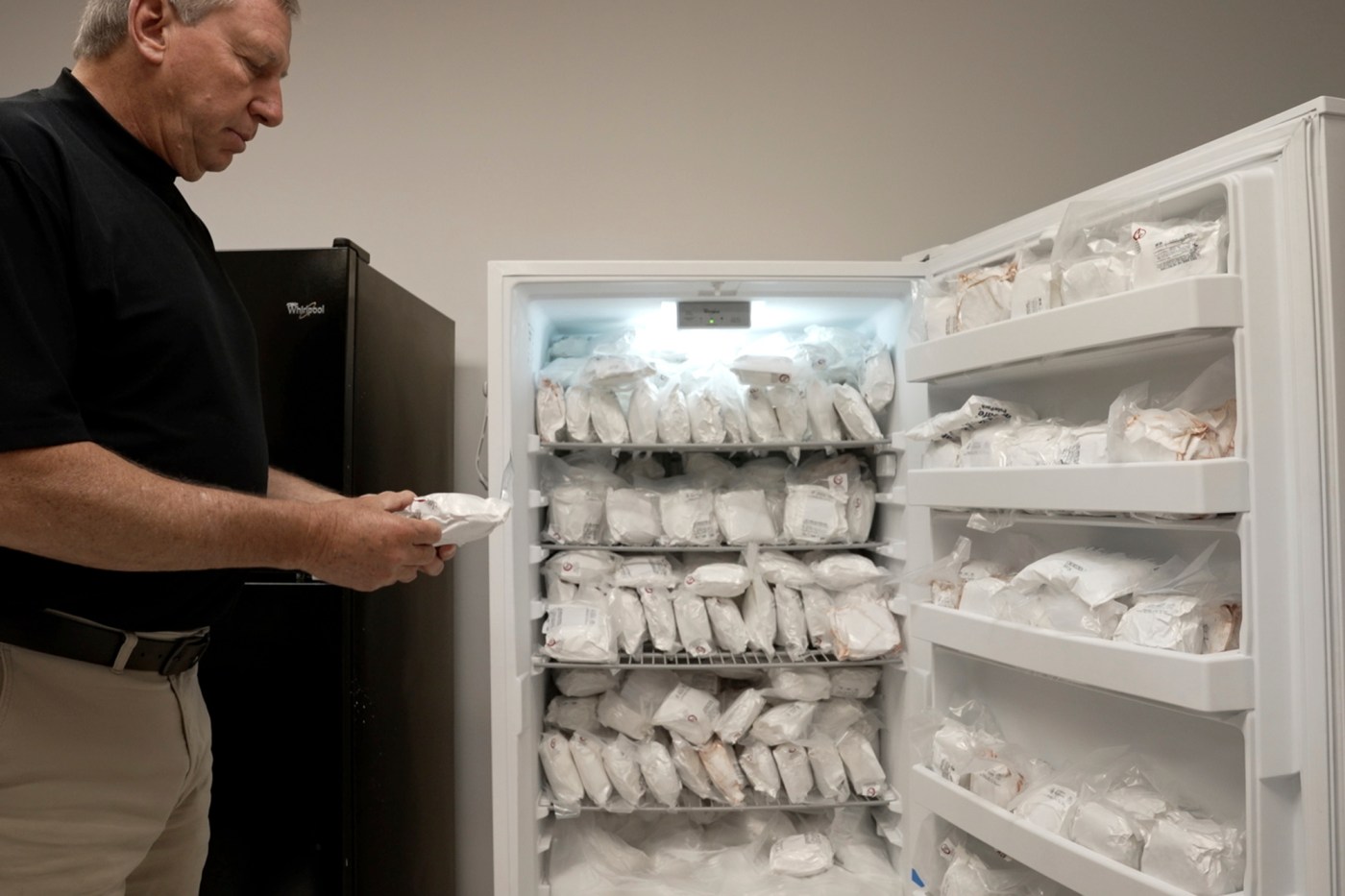
Researchers discover allergy-free bacon
BLACKSBURG, Va. — Some people who develop a weird and terrifying allergy to red meat after a bite from a lone star tick can still eat pork from a surprising source: Genetically modified pigs created for organ transplant research.
Don’t look for it in grocery stores. The company that bred these special pigs shares its small supply, for free, with allergy patients.
“We get hundreds and hundreds of orders,” said David Ayares, who heads Revivicor Inc., as he opened a freezer jammed with packages of ground pork patties, ham, ribs and pork chops.
The allergy is called alpha-gal syndrome, named for a sugar that’s present in the tissues of nearly all mammals – except for people and some of our primate cousins. It can cause a serious reaction hours after eating beef, pork or any other red meat, or certain mammalian products such as milk or gelatin.
But where does organ transplantation come in? There aren’t enough donated human organs to go around so researchers are trying to use organs from pigs instead — and that same alpha-gal sugar is a big barrier. It causes the human immune system to immediately destroy a transplanted organ from an ordinary pig. So the first gene that Revivicor inactivated as it began genetically modifying pigs for animal-to-human transplants was the one that produces alpha-gal.
While xenotransplants still are experimental, Revivicor’s “GalSafe” pigs won Food and Drug Administration approval in 2020 to be used as a source of food, and a potential source for human therapeutics. The FDA determined there was no detectable level of alpha-gal across multiple generations of the pigs.
Revivicor, a subsidiary of United Therapeutics, isn’t a food company — it researches xenotransplantation. Nor has it yet found anyone in the agriculture business interested in selling GalSafe pork.
Still, “this is a research pig that FDA approved so let’s get it to the patients,” is how Ayares describes beginning the shipments a few years ago.
Revivicor’s GalSafe herd is housed in Iowa and to keep its numbers in check, some meat is periodically processed in a slaughterhouse certified by the U.S. Agriculture Department. Revivicor then mails frozen shipments to alpha-gal syndrome patients who’ve filled out applications for the pork.
Thank-you letters relating the joy of eating bacon again line a bulletin board near the freezer in Revivicor’s corporate office.
Separately, pigs with various gene modifications for xenotransplant research live on a Revivicor farm in Virginia, including a GalSafe pig that was the source for a recent experimental kidney transplant at NYU Langone Health.
And that begs the question: After removing transplantable organs, could the pig be used for meat?
No. The strong anesthesia used so the animals feel no pain during organ removal means they don’t meet USDA rules for drug-free food, said United Therapeutics spokesman Dewey Steadman.


